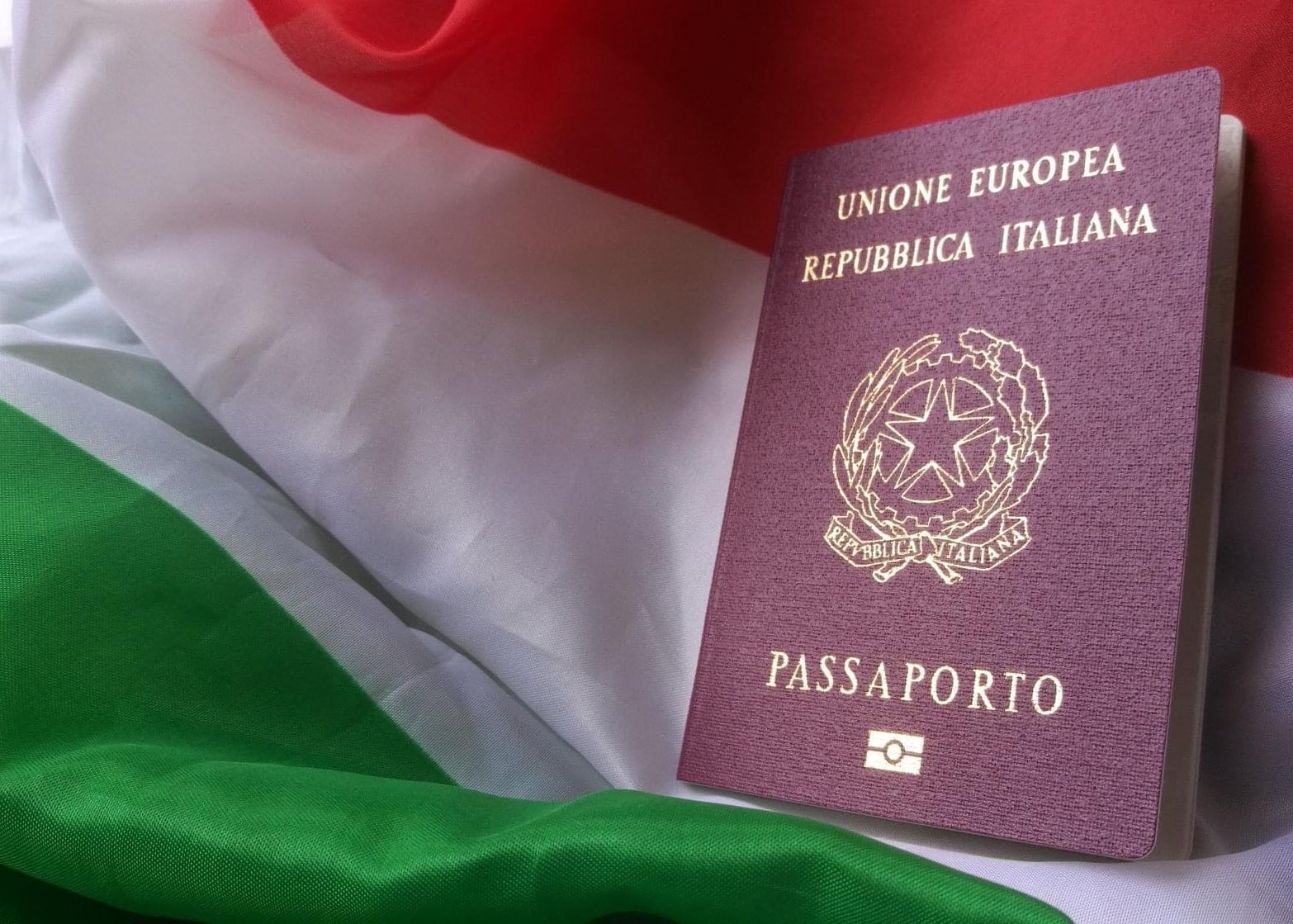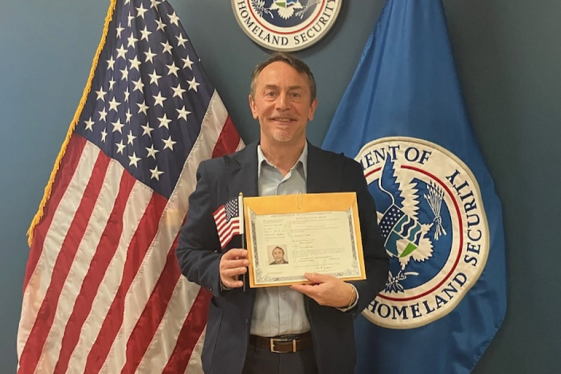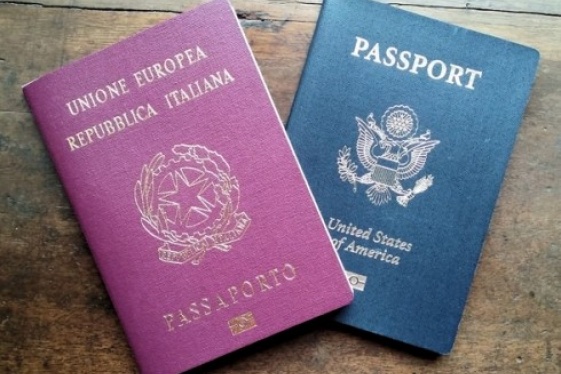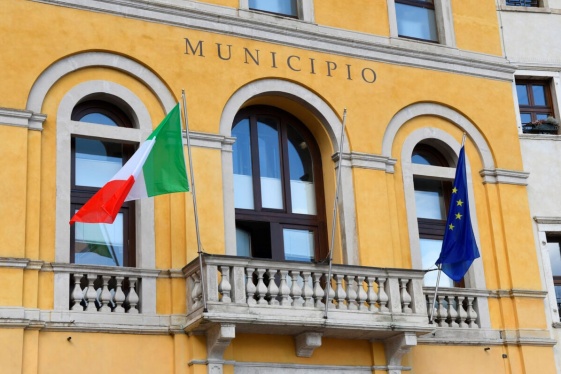

Most of our articles have analyzed the eligibility requirements to apply for Italian citizenship by descent and the application process via Italian consulates in the U.S. This article instead is for those of you who are U.S citizens but do not live in the United States and therefore need to apply for citizenship via an Italian consulate abroad.
In particular, this article will analyze the residency requirements and the documents needed to apply, and it will also address some of the most frequently asked questions with regards to filing a citizenship application via an Italian consulate abroad.
What are the residency requirements to apply for Italian citizenship outside of the U.S.?
If you apply for Italian citizenship at an Italian consulate outside of the U.S. and you are not a citizen of that country nor have permanent residency there, you will be required to hold a visa which covers you for at least 2 years from the date you submit your citizenship application. In other words, you cannot apply for Italian citizenship in a foreign country if you hold a tourist visa, or another type of temporary/short term visa. The reason why Italian consulates require that your visa is valid for at least 2 years after the submission of the citizenship application is because by law the citizenship office has a maximum of 2 years to process an application. Italian consulates abroad tend to be faster when assessing citizenship requests compared to Italian consulates in the U.S. because they have less applications to process, therefore, you might not need to wait 2 years to be granted Italian citizenship. It is also worth pointing out that if you hold a renewable study or work visa, for instance, or if you provide the Italian consulate with sufficient proof that you will be residing in the country where you apply for a period that exceeds 2 years they might allow you to file an application even if your visa is set to expire before. Please bear in mind that the Italian consulate to which you apply must cover the jurisdiction where you reside. Furthermore, the consulate might require additional proof of residency (i.e., a utility bill or a bank statement) in order to verify that you reside under their jurisdiction.
What are the documents needed to apply for Italian citizenship via a consulate outside of the U.S?
Applying for Italian citizenship by descent at an Italian consulate abroad is similar to applying via a consulate in the U.S. in that you will need to submit certified copies of your family’s vital records, authenticate them with an Apostille and translate them into Italian. You will also need your Italian ancestor’s naturalization records, or proof that your ancestor was never naturalized. More specifically, you will need your ancestor’s Declaration of Intentions, Petition for Naturalization and the Certificate of Naturalization. These documents can be retrieved from the National Archives and Records Administration (NARA) which hold government and historical records, the United States Citizenship and Immigration Services (USCIS), or the county in which the naturalization took place. On the other hand, if your ancestor never naturalized you will need to prove this by providing the Italian authorities with a Certificate of Non-Existence of Records that certifies that no naturalization record was found pertaining to your ancestor. The certificate can be retrieved from USCIS; on the other hand, NARA will provide you with a Letter of Negative Search.
However, one of the differences between applying via a consulate in the U.S and a consulate abroad is that if you apply abroad, you will most likely be required to provide the vital records pertaining to the family members in your direct line of descent only. Furthermore, unlike applying to the majority of consulates in the U.S. which require applicants to submit uncertified translations of their vital records, if you apply abroad you may be required to provide certified translations of your U.S. vital records. This is because although the consular clerks might speak English, officially, they are required to speak Italian and the language of the country where they are based, therefore they cannot verify that the translations into English are accurate and reflect the original records. Therefore, if you need certified translations, you will need to contact a professional translator who can certify the translations before a public notary, or before a clerk in a court in Italy. As for your appointment, the interview will be conducted either in Italian or in the language which is spoken in the country where the consulate is located. However, some clerks might also speak English.
On the other hand, when applying via Italian consulates in the U.S. (except for the consulate in Boston at the time of the writing of this article), the fee paid to the consulate to process a citizenship application also includes the cost for the consulate to certify the translations. In order for a consular clerk to certify translations, you will need to provide the consulate with the original documents via mail or you might need to submit them in person. You will need to pay a fee in order to obtain the certifications. This information is available on the consulate’s website in a specific table which outlines the consulate’s services and costs. If you reside in the U.S., for instance, but your ancestor lived in Argentina you may need to retrieve documents from Argentina. In order for the Italian consulate in the U.S. to accept the documents issued in Argentina you will need to certify the translation from Spanish to Italian. In this case, the best course of action is to ask an Italian Consulate in Argentina to certify the translations prior to submitting the documents in the U.S.
What happens if I became a citizen of the country in which I am applying for Italian citizenship?
If you are a resident of the country in which you intend to file your application for Italian citizenship by descent and you have also become a citizen of that country, aside from your family’s vital records, you will also need the certificate of naturalization from the country of which you became a citizen. The documents issued from the country in which you emigrated will need to comply with the requirements of that country, and generally they will not need a certified translation. On the other hand, the U.S. documents will need to comply with the U.S. law on vital records and legalization and may require a certified translation. However, please note that if you became a citizen through naturalization of the country in which you emigrated before August 15th, 1992 you lost your right to Italian citizenship.
If you would like further information about applying for Italian citizenship by descent via an Italian consulate abroad please watch the Italian citizenship podcast - episode 43 or visit ICA’s website. If you would like a free assessment of your eligibility, do not hesitate to contact us at either [email protected] or at +1 323-892- 0861.
You may be interested
-
After 50 Years, Sayreville Icon Camillo Ianac...
Camillo Ianacone, owner of Camillo's Restaurant (31 MacArthur Ave., Sayreville), officiall...
-
Announcing: Italian Citizenship Service
The Italy-America Chamber of Commerce is pleased to announce the launch of a new Italian C...
-
ICA: 1948 cases update. Local courts in Italy...
Did you know that local courts in Italy have been granted the authority to process applica...
-
ICA: 1948 cases. Italian citizenship through...
In last month’s Italian Citizenship Assistance article, we covered Italian citizenship by...
-
ICA: 5 Ways to acquire Italian Citizenship
Welcome again to our Italian Citizenship Assistance column! In our previous article, we di...
-
ICA: A podcast to help you with getting Itali...
Due to the large number of people who are unable to find information about Italian citizen...
-
ICA: Applying for Italian citizenship as a fa...
If you meet the eligibility requirements to apply for Italian citizenship by descent you m...
-
ICA: Applying for Italian citizenship in Ital...
In many of our articles published last year we provided extensive information on the eligi...










